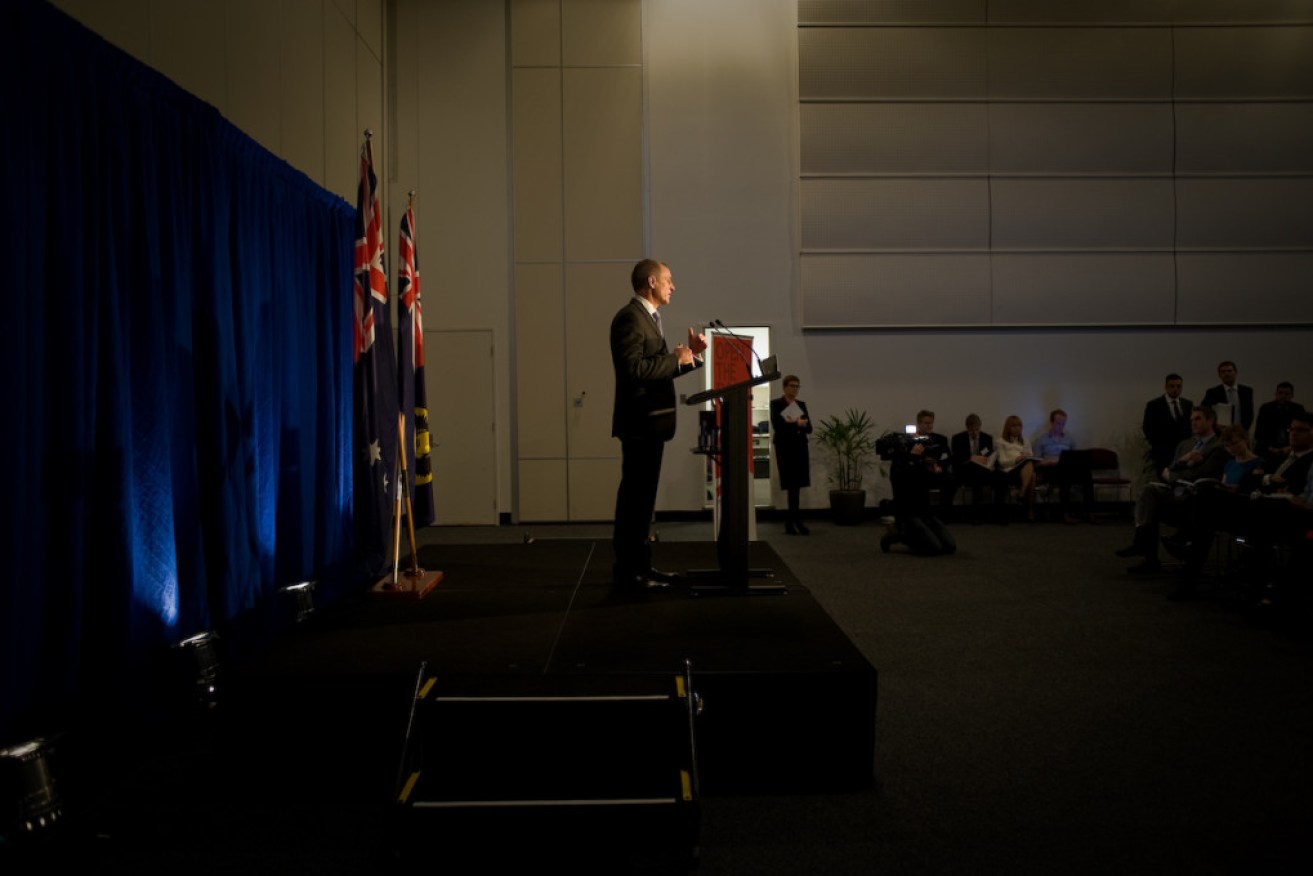Holden deal puts pressure on other workers

Jay Weatherill doesn't want a race to the bottom. Photo Nat Rogers/InDaily
Workers can expect pressure to take cuts in pay and conditions similar to Holden employees as the local economy feels the strain of a broad downturn.
Labor force analyst John Spoehr and Premier Jay Weatherill agree that the recent Holden decision has set a precedent.
Holden workers voted this week to approve a variation to their Enterprise Bargaining Agreement, freezing wages and reducing breaks, leave and redundancy packages.
The 1700 Holden workers at Elizabeth are the latest South Australians to take a pay cut to keep their jobs in an economy that is under pressure.
Spring Gully food processing workers had been taking pay and conditions cuts for a long time before the company almost fell over. They still have their jobs after the company survived a brief period in administration.
Small businesses with less than 20 workers are keeping afloat by giving workers less hours.
Spoehr says the trend reflects the seriousness of the current economic crisis in SA.
“Other firms in the automotive and manufacturing sectors will now be sitting down with their employees and negotiating new agreements that reflect whatever pressures they may be under,” the Executive Director of the Australian Workplace Innovation and Social Research Centre said.
“They will, however, have to demonstrate that there is a genuine reason for these deals to be done.
“That was shown in the Holden situation where the company agreed to open its books to an independent person.
“I don’t expect it to be much further widespread than those industries, such as car making, that have been hit so hard in recent times.”
Weatherill said yesterday he was also concerned that moves to cut wages and conditions might spread beyond the Holden deal.
“It shouldn’t be seen as a green light to people to slash terms and conditions of employment,” he said.
“These workers have made a sacrifice. But I also hope that they’re able to share in any productivity gains … if things improve I’d also expect these workers to be able to share in some of the benefits.
“There will always be some employers that will take advantage of this situation to try and leverage down wages and conditions, but I actually don’t think that is the future for South Australia.
“I don’t believe there should be just some race to the bottom.”
Spoehr agrees. He says that wages can’t be held down while costs of living keep rising.
“It’s not sustainable in an economy where the cost of living keeps rising. Energy prices, water and other costs continue to rise.”
Spoehr says that what we are experiencing in SA is typical of our economic history where we feel the impact of what’s happened in the USA several years after the event.
“That’s what we are experiencing now; the chill winds of the Global Financial Crisis.
“Like the US, we are looking for where the bottom is before we can start to climb back up.
“In the US the car industry got a federal bail out and then after that the industry negotiated with workers to reflect the changed industry conditions.
“We are seeing the same dynamics playing out, in an Australian context.”
Spoehr says that regardless of whether Holden stays or goes, governments have to move to re-gear the economy.
“Manufacturing is facing the need to be transformation.
“The advanced manufacturing agenda has to be accelerated.
“Public sector spending has to maintained as we grow our way out of this crisis.”




